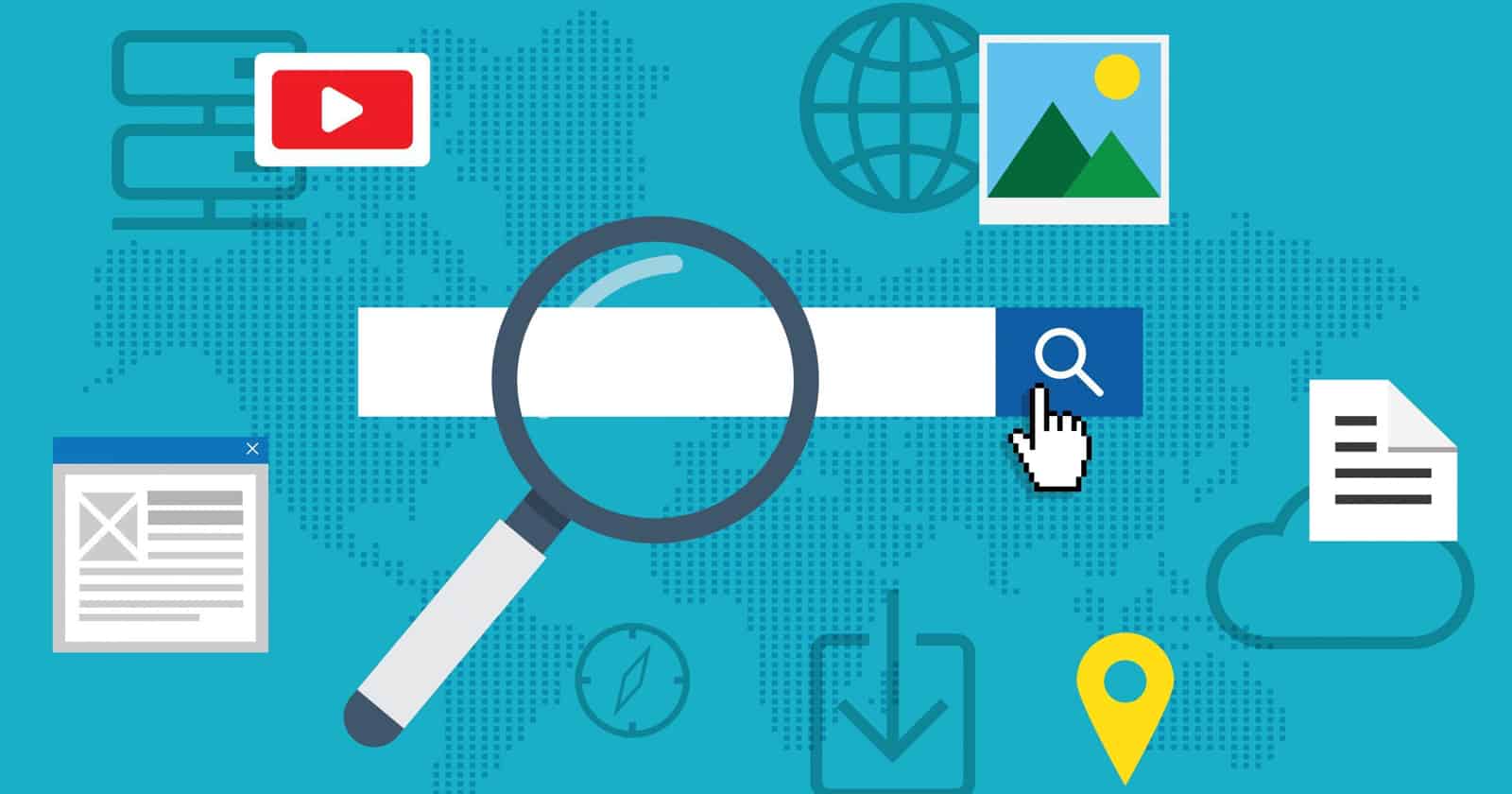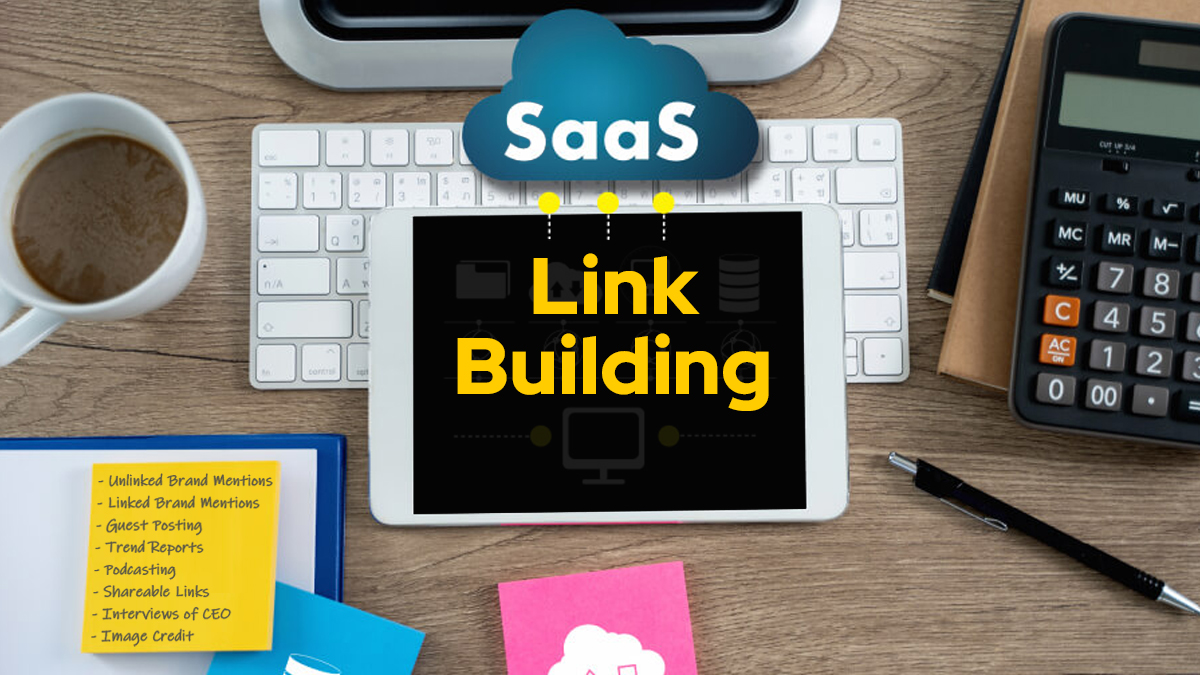In the ever-growing healthcare industry, projected to exceed $10 trillion by 2025, healthcare providers must prioritize their digital presence to remain competitive. As more people search for health-related information online, Link Building For Healthcare plays a vital role in ensuring websites are easily discoverable.
Link Building For Healthcare is essential for both large organizations and small clinics aiming to secure higher rankings on Google. This strategy involves obtaining links from reputable websites, which signals to Google that your site is trustworthy, ultimately boosting rankings. In fact, sites with strong backlinks have a 50% higher chance of ranking on the first page of search results.
By focusing on Link Building For Healthcare, providers can increase visibility, attract new patients, and improve website performance through a well-executed backlink strategy. Consistent content creation and external site publishing have proven effective in driving meaningful results over time.
Here’s why a strong link-building strategy was essential for your healthcare website’s success:
- Every minute, approximately 70,000 healthcare-related searches occur globally, indicating a significant shift towards digital information-seeking behavior. This growing trend underscores the necessity for healthcare providers to optimize their online presence, ensuring patients can easily find relevant and trustworthy information.
- A staggering 77% of patients relied on Google searches to make informed decisions about hospitals. This statistic highlighted the critical role of online visibility in attracting potential patients. Healthcare organizations must implement effective SEO strategies to ensure they appeared prominently in search results.
- About 90% of users choose their doctors based on online reviews, emphasizing the powerful impact of digital reputation. Positive feedback on platforms like Google and Yelp significantly influenced patients’ perceptions and choices, making it essential for healthcare providers to actively manage their online reviews.
- 71% of patients avoided booking appointments if they couldn’t easily find the necessary information on a website. This finding stressed the importance of having a user-friendly and informative online presence, as a lack of accessible information could deter potential patients from seeking care.
A solid link-building plan was vital for boosting your SEO success in the healthcare industry. In this blog, we’ll share practical strategies designed just for healthcare practices, helping you enhance your online visibility and build trust with potential patients.
By using these tips, you can attract and retain more patients, strengthening your practice’s position in today’s competitive digital landscape, where a strong online presence makes all the difference.
Partnering with an expert link-building agency is crucial for healthcare providers, as they have the specialized knowledge to build high-quality, relevant links that improve search rankings and ensure compliance with industry regulations.
Key Takeaways
- Building trust with Google and potential patients is essential. Link building shows that your healthcare site is a reliable source of information and plays a key role in search engine optimization (SEO). Search engines favor websites linked to by other respected sites, indicating that your content is valuable and relevant.
- Getting links from authoritative websites can enhance your reputation in the healthcare field. These links might come from professional associations, medical journals, or well-known health organizations, all of which can boost your site’s credibility. Additionally, guest blogging or writing for industry publications can help widen your reach and build trust.
- Creating engaging and informative content naturally attracts links from respected sources, positioning your healthcare site as a go-to resource. Content that answers common patient questions or shares unique insights into healthcare trends tends to get more attention and shares. Including visuals, infographics, and videos can also improve engagement and encourage linking.
- For practitioners focused on local areas, securing links from community websites can enhance their visibility in local search results. Collaborating with local health initiatives, sponsoring community events, or contributing to local news outlets can help generate valuable local backlinks. This strengthens community connections and increases visibility among potential patients searching for healthcare services nearby.
What is Link Building?
Link building plays a crucial role in SEO by acquiring backlinks from external websites to your own. These links direct users from other sites to your domain, enhancing visibility and establishing authority in search engine rankings. Search engines view high-quality backlinks as endorsements, indicating that your content is trustworthy and relevant, ultimately improving your chances of ranking higher in search results.
Link building involves various strategies, including fostering collaborations with other websites and bloggers. Businesses can secure backlinks from reputable sources by forming partnerships, significantly enhancing their credibility. This collaborative approach increases the quantity and quality of links, leading to more effective outcomes in improving search engine rankings and driving traffic.
Guest blogging emerged as a popular method for acquiring backlinks. By contributing posts to authoritative sites, businesses could showcase their expertise while gaining valuable links in return. Creating shareable content, such as infographics or in-depth guides, also encourages other sites to link back to your resources, further amplifying your reach and establishing your brand as a thought leader.
Engaging with industry influencers and participating in online communities also contributed to successful link building. By connecting with key figures in your niche, you could tap into their networks, leading to opportunities for collaboration. Social media platforms provide a powerful avenue to promote your content, making it easier for others to discover and link to your website, increasing your online visibility.
Ultimately, a robust link building strategy not only improved search visibility but also drove referral traffic. As your backlink profile grew, so did your website’s authority, compounding your SEO efforts. Investing time in building relationships and leveraging diverse link acquisition techniques proved essential for long-term success in the competitive digital landscape.
Also Read: The Insider’s Guide to Successful Blogger Outreach
Building Links For Healthcare Providers: Why Does It Matter So Much?
Link Building For Healthcare is an essential strategy for boosting the online presence of healthcare practices. It goes beyond just digital marketing—Link Building For Healthcare strengthens the credibility of healthcare providers by acquiring high-quality backlinks from authoritative websites. These backlinks significantly impact search engine rankings, ensuring healthcare practices stand out in a highly competitive field.
Through Link Building For Healthcare, securing reputable backlinks signals to search engines that a practice is trustworthy, which results in higher search rankings. This improved visibility helps healthcare websites attract potential patients actively seeking medical services. High-quality links also drive targeted referral traffic, bringing in more relevant visitors likely to convert into patients.
Moreover, an effective Link Building For Healthcare strategy introduces practices to new audiences through links from health-related blogs, medical directories, and trusted industry sites. This increases brand visibility, solidifies authority in the healthcare industry, and enhances patient trust, reinforcing a practice’s reputation and expertise.
Improve Your Search Engine Ranking Results
The healthcare industry thrived on trust, as patients, caregivers, and healthcare professionals turned to reliable sources for accurate information. Trust was essential in doctor-patient relationships and extended to digital platforms.
A healthcare website’s credibility relies heavily on how trustworthy it appears to users and search engines alike. Without gaining this trust, even the most relevant and helpful medical information would remain undiscovered by its intended audience.
Link building became a cornerstone of establishing this trust online. It helped with visibility in search engine rankings and fostered trust with patients and medical experts. High-quality backlinks act as endorsements from other reputable websites, signaling to search engines like Google that your content is authoritative and credible. These backlinks are often the key to climbing up healthcare websites’ search engine results pages (SERPs).
Building trust with both Google and potential patients is key. Link building not only shows that your healthcare site is reliable, but it also plays a major role in SEO. Search engines rank websites higher when other trusted sites link to them, signaling that your content is helpful and relevant.
Getting links from well-respected sources like medical associations, journals, or health organizations boosts your authority in the healthcare space. Writing guest blogs or contributing to industry publications can also expand your credibility and reach.
Creating useful, engaging content naturally attracts links from trusted sources, positioning your healthcare site as a go-to resource. Content that answers common patient questions or offers unique perspectives on healthcare trends often gets shared. Adding visuals, infographics, or videos can also increase engagement and drive more links.
For local practitioners, getting links from community websites can improve local search rankings. Partnering with local health groups, sponsoring events, or contributing to local news outlets helps build valuable local backlinks and strengthens ties with potential patients.
Boost Website Visitors Naturally
Higher visibility on search engine results pages (SERPs) directly impacted organic traffic. With over 68% of clicks going to the top three organic search results on Google, securing one of these coveted positions became essential. Appearing in top positions boosted clicks and increased the chances of building credibility and trust with potential patients.
Developing a robust link-building strategy was vital for healthcare companies operating in competitive environments. Healthcare businesses could significantly enhance their search rankings by acquiring backlinks from authoritative websites.
These backlinks served as a vote of confidence from other websites, signaling to search engines that the content was trustworthy. This, in turn, boosted overall domain authority and visibility. Effective link-building improved rankings and increased organic traffic. High-quality backlinks attracted a targeted audience, driving more potential patients to the healthcare website.
This increase in traffic was essential for healthcare providers looking to generate more patient inquiries and ultimately convert those inquiries into appointments. Furthermore, increased visibility had a long-term effect on a healthcare company’s online presence. As organic traffic grew, so did the opportunity for healthcare businesses to strengthen their brand.
Through a well-rounded link-building and SEO strategy, healthcare websites could become more prominent, expanding their reach to a broader audience and improving patient engagement over time.
The case of Canadian physician Peter Attia was a prime example. In February 2019, he had 2,095 referring domains and 36,339 visits. His consistent efforts to grow his backlink profile resulted in a steady increase in organic traffic, proving that an effective link-building strategy could yield significant results in the healthcare industry, enhancing visibility and patient interaction.
Referring Domain
A referring domain refers to any external website that directs traffic to your own. Unlike backlinks, where multiple links from one website are possible, each unique website counts as one referring domain. This distinction is vital in SEO because search engines value the diversity of sources linking to your site, helping to gauge its overall credibility and relevance in the digital space.
Building links from various external websites, especially those with high domain authority, boosts your site’s search engine visibility. The more diverse and credible these referring domains are, the better your SEO performance will be. Google, for instance, uses this metric to assess whether your content is relevant and trustworthy to users, which can lead to higher rankings.
Search engines consider both the quality and number of links when judging a site’s value. A site that gathers links from trusted sources appears more authoritative. This boosts its chances of appearing in relevant searches, increasing organic traffic and attracting the right audience.
Websites with more unique referring domains typically experience improved search engine performance. These referring domains act as votes of confidence from various sites, signaling that your content is worth sharing. This can result in more organic visitors, a key metric for long-term website growth and visibility.
As of February 2024, his website had gathered over 6,000 unique referring domains, attracting 80,000 visitors. This significant achievement underscores the power of a well-rounded backlink profile, as acquiring high-quality links from diverse domains is one of the most effective ways to boost traffic and search engine rankings.
Build website credibility
Link-building strategies played a critical role in establishing authority within the healthcare industry. By obtaining backlinks from reputable sources such as medical institutions, healthcare journals, and professional associations, your site gained credibility in the eyes of search engines. These quality links acted as endorsements, validating your content and expertise, which is essential in an industry where trust and accuracy are paramount.
A well-executed link-building strategy directly boosted your domain authority. Search engines used this metric to gauge your website’s credibility; quality backlinks played a big role in improving it. As your domain authority grew, it signaled to search engines that your website was a trusted source, which helped raise its rankings for relevant searches.
Higher rankings brought better visibility among prospective patients and healthcare professionals. A top position meant more users found your site when searching for healthcare information. This positioned your website as a valuable patient resource and established it as an authority that others looked to for expertise.
By building this kind of authority, your website became a trusted hub for healthcare information. Patients turned to your site for reliable advice, and medical professionals relied on it for up-to-date insights. This solidified your reputation online, making your website a go-to source within the healthcare community.
A clear example of the long-term benefits of effective link-building was Peter Attia. His backlink profile and organic traffic grew significantly between 2019 and 2024, increasing his domain rating from 62 to 73. This demonstrated the importance of building a strong backlink profile to enhance visibility, trust, and domain authority in the healthcare industry.
Improve User Experience.
A solid internal link-building strategy is essential for improving the user experience on your website. By connecting related pages, you help users easily find more information that interests them. This enriches their browsing experience and encourages them to stay longer, making their time on your site enjoyable and informative—leading them to return for more.
For example, if your site covers nutrition topics, a post about the benefits of a plant-based diet can link to a previous post by a nutritionist discussing plant-based protein sources.
This kind of internal linking acts like a treasure map, guiding readers to deeper insights without the hassle of searching elsewhere. It empowers users to explore related subjects, enhancing their understanding and satisfaction with your content.
Internal links also play a crucial role in reducing bounce rates, which show how many visitors leave after viewing just one page. Creating a logical flow through your content encourages users to stick around and engage with more material. This boosts their experience and signals to search engines that your site provides valuable information worth exploring.
A strong internal linking strategy can also increase users’ time on your website, which is vital for improving your site’s SEO performance. When visitors explore multiple pages, it indicates to search engines that your content resonates with them, ultimately enhancing your visibility in search results and attracting even more visitors.
Since 64% of patients now schedule appointments directly through healthcare websites, creating a positive user experience is key to turning visitors into patients. By making it simple for them to find relevant and helpful information, you build trust and encourage them to take action.
Internal linking helps with your SEO goals and enhances your site’s ability to attract and keep new patients engaged. It’s all about making their journey easier and more enjoyable.
Also Read: New Study Reveals Websites Need 1000+ Backlinks to Succeed
Key Factors To Remember For Effective Link Building
Search engines evaluate links differently based on quality, making it crucial to assess various metrics to determine their value. High-quality links from authoritative and relevant sites hold more weight than low-quality or irrelevant links.
This makes link building a vital and proactive element of SEO, especially for healthcare practices that rely on local search visibility. Factors like domain authority, relevance, and the trustworthiness of linking sites play a major role in determining how search engines perceive the value of your backlinks.
Link building isn’t just something you do in the background; it’s crucial to improving your healthcare practice’s visibility online. When you focus on getting links from reputable health websites, directories, and peer-reviewed posts, you show that your practice is a trusted resource in the medical community.
Search engines like Google judge your online reputation based on these links, directly affecting your rank. Plus, by forming local partnerships and engaging with your community, you can boost your local SEO, helping more patients discover your practice.
Focusing on high-quality links that perform well across key metrics can significantly strengthen your link-building strategy, boosting your visibility and overall digital marketing efforts.
Quality over quantity remains a golden rule—one link from a reputable medical journal or news outlet can offer more SEO value than dozens of links from less credible sources. Additionally, monitoring your backlink profile to ensure that it remains free of spammy or irrelevant links is critical for maintaining a healthy domain authority.
Understanding how link building supports your online presence is key to long-term success. A solid link-building strategy boosts your healthcare website’s rankings, increases organic traffic, and builds trust with both search engines and potential patients. When done right, it doesn’t just improve your SEO—it also strengthens your entire digital marketing efforts.
Domain Authority (DA) And Domain Rating (DR)
Domain authority (DA) and domain rating (DR) are crucial metrics for assessing a domain’s overall strength and credibility in the digital ecosystem. Understanding these metrics is vital for any digital marketer aiming to improve search engine visibility. Both metrics indicate how well a domain may perform in search results.
DA, developed by Moz, scores domains on a scale of 0 to 100. This metric evaluates the likelihood of a domain ranking well in search engine results pages (SERPs). A higher DA score often correlates with greater authority, signaling that the site has a robust backlink profile and quality content that attracts organic traffic.
Conversely, DR, provided by Ahrefs, also ranges from 0 to 100, focusing specifically on the strength of a domain’s backlink profile. This score helps marketers understand how well a site can compete in its niche. When targeting websites for link-building, prioritizing those with high DA and DR scores is essential. Backlinks from authoritative domains enhance your site’s credibility and improve its SEO performance. These backlinks can lead to increased organic traffic, as search engines favor content linked from reputable sources.
Both DA and DR are invaluable tools for digital marketers. By focusing on high-scoring domains for link-building, you can significantly boost your site’s visibility and authority. This strategic approach enhances your SEO efforts and fosters trust with your audience, ultimately leading to sustained online success.
Trust Flow And Citation Flow
Trust flow (TF) and citation flow (CF) from Majestic are pivotal metrics for evaluating backlink quality in SEO. TF assesses a site’s credibility by analyzing the quality of its backlinks, while CF measures influence through the sheer volume of links pointing to a site. A higher TF relative to CF indicates strong, reputable backlinks, enhancing trustworthiness.
In developing a healthcare link-building strategy, it’s crucial to prioritize links with robust TF and a well-balanced TF/CF ratio. This focus ensures that your backlinks significantly improve site authority and visibility. Such metrics help in ranking and establish your site as a credible source in the healthcare industry.
Acquiring backlinks from authoritative healthcare websites, reputable industry blogs, and local directories is essential. These sources enhance your site’s link profile and reach a relevant audience. Links from trusted sites improve SEO performance and demonstrate your site’s reliability, attracting more organic traffic and potential patients.
Guest blogging is a great way to boost your healthcare website’s links. By sharing useful content on established platforms, you earn backlinks and showcase your expertise, which helps build trust with your audience.
Getting involved in health forums and being active on social media can further enhance your link-building efforts. Sharing your insights and connecting with the community drives traffic to your site and creates meaningful relationships. This friendly approach improves your SEO and supports your healthcare practice in the long run.
Referring Domains vs Referring Pages
Building a strong backlink portfolio with high-quality links from various domains is far more effective than just gathering lots of links from one source. When search engines see that many different independent sites value your content, it boosts your site’s authority and helps improve its search rankings.
When your site has links from various domains, it boosts your trustworthiness. Search engines see this mix of respected sources linking to you as a strong vote of confidence. This can improve how your site appears in search results and bring in more organic traffic. Remember that having quality links matters more than just having a lot of them; a variety of backlinks helps build a solid online reputation.
Focusing on getting unique referring domains also helps you avoid penalties from search engine algorithms. These algorithms are designed to spot manipulative link-building tactics, like link spamming. Developing a natural linking pattern with different sources protects your site and ensures a more sustainable link-building strategy.
Moreover, a healthy link profile boosts your search rankings and enhances the user experience. Users who see various links pointing to your site are more likely to view it as a valuable resource. This perception can lead to increased engagement and longer visits, further boosting your credibility.
Ultimately, focusing on creating a varied and high-quality backlink portfolio lays the groundwork for lasting growth. This strategy follows SEO best practices, enhancing your chances of gaining organic visibility while earning trust from both search engines and users. In short, this approach bolsters your link profile and ensures your site remains relevant and respected in an ever-evolving digital world.
Link Spamming
Link spamming involves the generation of numerous links aimed at artificially boosting a website’s Google rankings. This practice often includes posting unrelated links in blog comments, spamming forums, or utilizing link farms designed to link to one another. These tactics not only compromise the integrity of the web but also diminish user experience.
The motivations behind link spamming often stem from the desire for quick results in search engine rankings. Website owners may resort to these unethical methods, hoping to gain visibility without investing in quality content or legitimate marketing strategies. However, this short-term gain can negatively affect the website’s reputation and credibility.
Search engines have developed sophisticated methods to detect and penalize sites engaging in link spamming. Algorithms such as Google’s Penguin specifically target manipulative linking practices. These algorithms analyze link patterns, assessing the relevance and quality of links, making it increasingly difficult for spammers to evade detection and maintain their rankings.
The consequences of link spamming can be severe, leading to a significant decline in search rankings or even complete removal from search engine results pages (SERPs). Websites caught in this practice face a loss of traffic and potential damage to their brand reputation, making recovery challenging.
In contrast, ethical link-building strategies focus on creating high-quality content and fostering genuine relationships within the online community. By prioritizing authentic engagement and valuable resources, website owners can enhance their credibility and sustainably boost organic traffic, establishing a solid foundation for long-term success in search engine visibility.
Page Authority (PA) And URL Rating (UR)
Page Authority (PA) and URL Rating (UR) were key tools for judging the effectiveness and trustworthiness of specific web pages. Unlike metrics that measure entire domains, PA and UR focused on the strength of individual URLs, helping SEO experts understand how well a particular page might rank in search results. These metrics were crucial for boosting a page’s visibility and relevance in search engines.
PA, created by Moz, estimated a page’s likelihood of ranking based on factors like the quality of backlinks, content relevance, and page structure. On a scale from 0 to 100, it gave website owners a quick snapshot of their page’s potential to rank well on search engine results pages (SERPs). Higher scores meant a better chance of landing top rankings.
Similarly, UR, created by Ahrefs, provided insights into the backlink strength of a specific URL. UR also operated on a 0 to 100 scale, with higher numbers reflecting a page’s robust backlink profile. Pages with a higher UR were typically considered more authoritative by search engines, making them more likely to appear in higher-ranking positions. UR primarily focused on external links and their quality.
One significant aspect of both PA and UR was their influence on link equity. Links from pages with high PA and UR scores passed more authority and SEO value to the recipient pages. These links effectively boosted the ranking potential of the linked pages, making high-authority backlinks a valuable asset in any SEO strategy. Thus, acquiring quality links became a priority.
While PA and UR might differ in the factors they measured, they complemented each other in guiding SEO efforts. By building strong, authoritative pages with high PA and UR, website owners could improve their individual page rankings and overall site performance. Prioritizing pages with high authority could yield significant SEO benefits.
Understanding Link Juice
Link juice is a catchy term in the SEO world that describes how value and authority are passed from one webpage to another through links. When one page connects to another, it shares some of its ranking strength—what we call “juice.” This idea is crucial for improving search rankings because it helps search engines decide how to rate the linked content.
When a trustworthy website links to your page, it suggests that your content is reliable and worth visiting. Search engines like Google consider this when determining where to rank your page in search results. A link from a respected site can boost your page’s visibility, making it more likely to appear at the top of relevant searches and draw in more organic traffic.
The authority of the linking site plays a significant role in determining the amount of link juice passed. A link from a high-quality, reputable website carries much more weight than one from a lesser-known or low-authority site. This is because search engines view these high-authority links as stronger endorsements of your content’s quality and relevance.
In addition to external links, internal linking within your website also contributes to distributing link juice. By strategically linking related pages, you help search engines better understand the hierarchy and importance of content on your site. This practice boosts rankings and improves user navigation by guiding visitors to relevant content.
Managing link juice is a key part of a successful SEO strategy. Building backlinks from authoritative sources while also maintaining a strong internal linking structure ensures that your pages are highly visible and easily navigable. This combination helps improve overall search performance and drive sustained growth in organic traffic.
Also Read: Ultimate Guide To Conducting A Backlink Audit
How To Begin Link Building For Healthcare Services
Here are effective link-building strategies for healthcare companies and practitioners:
Audit And Optimize Our Website
Link-building strategies should commence with a comprehensive evaluation of your website. This initial step is crucial for achieving higher search engine rankings and boosting organic traffic. By understanding your site’s strengths and weaknesses, you can tailor your link-building efforts effectively. This groundwork sets the stage for more targeted actions, ultimately maximizing the return on your investment in SEO strategies.
Before collecting backlinks, ensure your website is set up to turn visitors into customers. Look at your call-to-action buttons, landing pages, and content layout. A friendly and organized site will catch people’s attention and invite them to stick around. When visitors see the real value in what you offer, they’re more likely to become leads or make a purchase, which is great for your success!
Using tools such as Google Analytics, SEMrush, or Ahrefs is vital in this optimization process. These platforms provide valuable insights into technical issues, user behavior, and keyword performance. By analyzing this data, you can pinpoint improvement areas and address content gaps that may hinder your SEO efforts. Effective use of these tools allows you to make informed decisions, driving your website toward better performance.
Conducting a competitor analysis is another key element in your link-building strategy. Examining your competitors’ backlink profiles allows you to identify opportunities that may benefit your site. This approach helps you uncover potential linking sites and provides insights into effective content strategies within your niche. Understanding the landscape can give you a competitive edge in securing valuable backlinks.
Creating engaging content is essential for attracting organic backlinks. Quality resources like helpful blog posts, eye-catching infographics, and fun videos grab attention and encourage sharing. When your content resonates with your audience, they will likely link back to it. By prioritizing what matters—quality and relevance—you boost your site’s authority and attract potential link partners. It’s all about connecting and building valuable relationships.
Create High-Quality Content
A good link-building strategy hinges on the strength of your content. If your content isn’t engaging, trustworthy websites likely won’t link to you. Investing time in crafting helpful and relatable material that truly connects with your audience is important. When you focus on delivering quality, you draw in more visitors and establish trust. This trust makes it more likely that others will want to link back to you, boosting your site’s visibility.
For instance, Dr. Axe’s blog post on “The Human Microbiome” collected 712 backlinks from 173 different sites, including HuffPost.com, a leading website in the U.S. This blog provided comprehensive information and featured visually appealing infographics that enhanced its shareability.
To develop valuable content that attracts links, consider the following steps:
- Understand Your Audience: It was essential to know who you were writing for and the challenges they faced. Whether your healthcare practice specialized in family medicine or physiotherapy, understanding your target audience helped you adjust your tone and complexity. Tools like Google Analytics and social media insights made identifying audience demographics and preferences easier.
- Use Relevant Keywords: It is crucial to conduct keyword research to determine what your audience is searching for. Integrating these keywords into your content can significantly increase its visibility. Tools like SEMrush or Ahrefs help you discover high-traffic keywords and phrases that match your topics.
- Create authoritative content: The key was to aim to cover topics in-depth and provide more value than existing online resources. This could include detailed guides, how-to posts, research studies, or expert insights. According to HubSpot, long-form content (over 1,500 words) often performs better in search rankings, leading to increased backlinks.
- Utilize various formats: Incorporating videos, infographics, podcasts, and interactive tools alongside written content could attract different backlinks and engage a wider audience. Content diversity caters to various learning styles and keeps your audience interested.
Producing high-quality content requires skilled researchers, writers, and designers. If this seemed challenging, reaching out to professionals could help you create content that truly earns links. Working with experts saves time and ensures your content meets the highest standards of quality and relevance, ultimately boosting your link-building efforts.
Local Link Building
Local link building involves obtaining backlinks from websites within your community to enhance your search engine visibility in that specific area. This strategy is crucial for healthcare providers aiming to establish themselves as trusted local resources.
While a telehealth provider may focus on national websites for backlinks, a local practitioner should prioritize their immediate area. Although local sites often have lower domain authority than national ones, their links can be highly effective. They show search engines that the healthcare provider is a trusted resource in the community, which helps improve rankings and attract local patients.
To enhance your local link-building efforts, consider these approaches:
- Participate in community events: Getting involved in or sponsoring local events can result in mentions and links from event-related websites and local news outlets. This participation builds backlinks, fosters community relationships, and enhances brand visibility.
- Form partnerships with local health organizations: Collaborating with local healthcare groups, charities, or wellness initiatives can create backlinks through shared content and press releases. These partnerships can lead to mutual promotions, increasing exposure and credibility in the community.
- Create content relevant to your community: Producing informative content that addresses local health issues, seasonal advice, or healthcare options guides can attract local media backlinks. By tailoring your content to local interests and needs, you can position your practice as a go-to resource, making it more likely that local websites will link to your site.
- Register in local directories: List your healthcare service in local business directories, especially those tailored to the medical field, to acquire valuable local backlinks. Many potential patients rely on these directories to find healthcare services, so being listed can enhance visibility while boosting your website’s authority.
- Engage with local bloggers and influencers: Building relationships with local bloggers and social media influencers can lead to organic backlinks. When these individuals share your content or mention your practice in their posts, it can significantly enhance your reach and local authority.
By implementing these strategies, healthcare providers can significantly enhance their local online presence, which is vital for attracting new patients. Engaging with the community, forming partnerships, and creating targeted content drive traffic to their websites and build trust and credibility. This approach ensures that potential patients see them as reliable local resources, ultimately leading to increased patient inquiries and appointments.
Guest post
Guest posting consists of writing and sharing posts on various websites, blogs, or online platforms related to the healthcare sector and related fields. This strategy enhances visibility and fosters community engagement among healthcare providers and their audiences.
This method serves as a link-building strategy that allows healthcare providers to improve their online visibility and assert their expertise. By showcasing their knowledge on different platforms, they can connect more effectively with prospective patients and establish authority in their respective fields.
Here are the advantages of guest posting for healthcare providers:
- Enhanced brand visibility: By contributing to reputable sites, healthcare providers can broaden their audience reach, including potential patients, other professionals in the field, and industry influencers. This expanded visibility can lead to increased traffic to their own websites, potentially converting visitors into patients.
- Establishing credibility: Publishing informative, well-researched posts helps healthcare providers be recognized as trusted sources of information. A strong presence on respected platforms can also enhance their reputation and influence in the healthcare community.
- Generating backlinks: Writing guest posts on credible sites provides valuable backlinks to the healthcare provider’s website. These backlinks improve SEO and help drive referral traffic, ultimately enhancing the provider’s online authority.
- Fostering connections: Collaborating with other platforms can create opportunities for professional networking, leading to more guest posting invitations, partnerships, and referrals. This collaboration often opens doors to speaking engagements, workshops, and collaborative research efforts.
For example, occupational therapist Lis Bahr, OTD, MS, wrote a guest blog titled “6 Ways To Reduce Low Back Pain If You Spend A Lot Of Time Sitting” for MindBodyGreen, a well-known health website. This post offered valuable insights while connecting with an audience interested in health and wellness, illustrating how effective guest posting can enhance both reach and engagement.
To begin guest posting, consider these steps:
- Identify relevant platforms: Focus on websites and blogs that match your expertise. If your target audience includes potential patients, seek out health and wellness blogs. For medical professionals, consider medical journals and the websites of professional associations. Tools like BuzzSumo can help identify influential sites in your niche.
- Offer valuable content: Ensure your guest posts provide useful insights or answers to the audience’s questions. High-quality, practical content is more likely to be shared and linked. Adding data, stats, or case studies will back up your points and make your content more credible.
- Review submission guidelines: Before contacting website owners, check if they accept guest posts. Following their submission rules, like content length and formatting, increases your chances of getting approved. Personalizing your pitch to show how your content fits their audience’s needs can also boost your chances.
- Promote your guest post: After publication, share your guest post through social media, email newsletters, and other marketing channels. This drives traffic to the host site and enhances your content’s exposure. Engaging with readers through comments and social media can also help build relationships and further establish your presence.
Help A Reporter Out
Help A Reporter Out (HARO) is an online platform that connects journalists with sources for their stories. It is a valuable resource for reporters, bloggers, and writers who submit queries seeking expert insights to enhance their posts. HARO offers healthcare professionals a significant opportunity for link building while helping them establish credibility by sharing their specialized knowledge with a wider audience.
Here’s how to begin:
- Register and Set Your Interests: Medical professionals can easily join HARO as sources by completing a simple registration process. During this process, you can select specific topics relevant to healthcare, such as mental health, nutrition, or public health, ensuring you receive inquiries that match your expertise and interests.
- Receive Requests: Once you’ve signed up, you’ll start getting emails with inquiries from journalists eager to find sources like you. These requests are customized based on your preferences, which means you’ll see topics that truly resonate with your experience. This targeted approach helps you easily discover relevant opportunities to share your insights and make an impact.
- Respond to Requests: When you come across an inquiry that aligns with your knowledge and experience, take the time to respond thoughtfully to the journalist. Detailed, well-researched answers enhance your credibility and significantly improve your chances of being featured as a trusted source in their posts.
- Increase Your Visibility: If your response is selected, the journalist will typically include your input in their piece, along with your name, title, and a link back to your website or practice. This exposure not only boosts your online visibility but also enhances your authority within your field, potentially attracting new patients and opportunities for collaboration. Engaging regularly with HARO can lead to ongoing media exposure and position you as a go-to expert in your area.
Work With Influencers
Partnering with patient influencers offered healthcare providers a direct and effective approach to reaching their target audience. These individuals built genuine trust with their followers by sharing personal experiences and insights about health and wellness, often speaking from lived experiences of managing chronic conditions or overcoming health challenges. Their close connection with their community positioned them as trusted voices, making them ideal partners for amplifying healthcare messages authentically and relatable.
Here are the key benefits of working with patient influencers:
- Credibility: Studies have shown that 51% of patients trust healthcare influencers more than lifestyle influencers, as their advice comes from personal health journeys. This credibility extends to the medical practices and healthcare brands they endorse, providing an additional layer of trust for patients seeking reliable information.
- Visibility: Patient influencers significantly expanded the reach of healthcare providers, introducing their services to new and often broader audiences. Their personal stories, shared through blogs, social media, or YouTube, resonated deeply with followers, naturally increasing brand awareness and engagement.
- Authentic Content: Collaborating with patient influencers resulted in authentic, relevant content that addressed potential patients’ real needs and concerns. This content, often created as testimonials, tutorials, or day-in-the-life videos, helped humanize healthcare services, making them more approachable and relatable.
When choosing an influencer, healthcare providers focused on finding those who aligned with their brand and healthcare goals. Micro-influencers, with smaller but highly engaged audiences, often offered higher levels of interaction and trust within niche communities, whereas celebrity influencers provided greater visibility but typically required a more substantial investment.
Successful Link-Building Campaigns: Real-Life Examples
In today’s competitive healthcare marketing landscape, building your practice’s authority and expanding your reach to attract and keep patients is essential. Forming strategic partnerships and collaborations can significantly boost your online presence and build trust within your community.
Using effective strategies like guest blogging, conducting expert interviews, and sharing valuable resources, you can create content that informs patients and enhances your brand’s credibility.
- Guest Blogging Partnership: Collaborating with a credible medical blog can significantly boost your online presence. By contributing a thoroughly researched post highlighting your practice’s specific expertise and insights, you position yourself as an authority in your field and tap into the blog’s existing audience. This approach can enhance your website’s SEO through quality backlinks and improve patient trust.
- Expert Interview Feature: Participating in a healthcare podcast or post is an excellent platform for showcasing your expertise. Ensuring that your practice’s website is linked in these features can strengthen your authority and reach a wider audience. This type of exposure also enhances your credibility, as audiences often view experts featured in reputable podcasts as trustworthy sources of information. Engaging with established platforms can lead to increased website visits, with some healthcare professionals reporting a rise in inquiries and appointments following such features.
- Resource Sharing Collaboration: Developing a detailed healthcare guide, such as one focused on preventive care, allows you to share valuable insights with both patients and related healthcare organizations. By collaborating on resource-sharing initiatives, you can foster relationships with other health entities and gain relevant backlinks to your website. This boosts your SEO and positions your practice as a community resource.
Integrating these strategies into your marketing plan can enhance your practice’s visibility and build meaningful connections within the healthcare community. The combination of quality content, expert authority, and collaborative resources helps you reach a broader audience and positions your practice as a trusted source of information and care. As the digital landscape continues to evolve, these approaches will be essential for sustaining patient engagement and fostering long-term growth.
Five Simple Tips For Successful Link Building For Healthcare Professionals
Emphasize Quality: Focus on building high-quality links instead of just chasing a ton of low-quality ones. Trustworthy links from reputable sources help your website rank better in search engines and boost your credibility in your field. Experts say that when your content gets backlinks from reliable domains, it tells search engines that what you’ve created is valuable and relevant, which means more visibility for you.
- Create Valuable Content: Focus on crafting content that truly resonates with your audience’s needs and brings genuine value. When you hit the mark, people are more likely to share your work and link back to it without you even asking. Consider incorporating data, infographics, and real-life case studies to make your content more lively and engaging. Research shows that educational and informative posts often grab more backlinks, helping you shine as a trusted voice in the healthcare field.
- Build Targeted Relationships: Focus on making genuine connections in the healthcare community that benefit everyone. Take the time to network with other professionals, attend industry events, and get involved in local activities. These steps can really boost your practice’s visibility and reputation. Plus, teaming up with local organizations or influencers is a great way to reach more people and build trust with potential patients. Remember, it’s about creating a supportive community where everyone thrives and makes a positive impact together.
- Utilize Social Media Effectively: Leverage social media to promote your content and extend its reach. Sharing insightful posts, patient testimonials, and behind-the-scenes glimpses of your practice can humanize your brand and encourage more engagement. Practices that actively connect on social media often see increased patient inquiries and a stronger online presence, thanks to the direct interaction these platforms allow.
- Regular Assessment and Improvement: Keeping a close eye on your backlink profile is important. Tools like Google Analytics and SEMrush can be super helpful for tracking your backlinks and identifying any that might hurt your SEO efforts. You’ll keep your online presence strong by removing low-quality links and tweaking your strategy as needed. Also, staying in the loop on algorithm changes and industry trends will help you further refine your link-building game. Regular maintenance is done to ensure your website stays in top shape.
Conclusion
Link Building For Healthcare is essential to improving both credibility and search engine rankings for healthcare organizations. In an industry where trust is paramount, establishing high-quality backlinks helps healthcare websites signal authority and attract prospective patients. By focusing on Link Building For Healthcare, organizations can enhance their online presence, drive organic traffic, and improve patient engagement.
A well-executed Link Building For Healthcare strategy involves building connections with reputable sites, creating valuable content, and utilizing social media outreach. Healthcare providers that prioritize this approach will gain a competitive edge, increasing patient trust and visibility in the ever-evolving digital landscape.
FAQs
How can healthcare organizations identify quality link building opportunities?
Healthcare organizations can identify quality link building opportunities by researching authoritative websites, including medical journals, health blogs, and industry-specific directories. Engaging with professional associations and participating in relevant webinars or conferences can also yield valuable connections. Creating high-quality content such as research studies, infographics, or expert interviews can also attract natural backlinks from other websites. Utilizing tools like Google Search Console or Ahrefs can further assist in identifying potential websites that may be inclined to link back to your content based on relevance and authority.
What are the common pitfalls to avoid in healthcare link building?
One of the main pitfalls to avoid is pursuing low-quality or spammy links, which can harm your website’s reputation and search rankings. Focusing solely on quantity over quality can also lead to a toxic link profile. It’s also important to avoid black-hat SEO techniques, such as buying links or engaging in link farms, as these practices can result in penalties from search engines. Lastly, neglecting to regularly monitor your backlink profile can lead to missed opportunities for improvement and growth and the risk of retaining harmful links.
How can healthcare organizations measure the success of their link building efforts?
Healthcare organizations can measure the success of their link building efforts through various metrics. Monitoring the number and quality of backlinks acquired over time is essential, as is assessing the domain authority of linking sites. Tools like Google Analytics can provide insights into referral traffic, showing how many visitors are coming from linked sites. Additionally, tracking changes in search engine rankings for targeted keywords can indicate the effectiveness of your link building strategy. Regularly reviewing these metrics allows organizations to identify what strategies are working and where adjustments are needed to optimize their efforts.
How important is local link building for healthcare providers?
Local link building is crucial for healthcare providers, especially those targeting patients in specific geographic areas. By acquiring links from local businesses, community organizations, and local health-related blogs, healthcare providers can enhance their visibility in local search results. Search engines often prioritize local results for geographically relevant queries, making local backlinks valuable. Additionally, local links help establish credibility within the community, reinforcing the provider’s reputation as a trusted source of healthcare services. Engaging in community events and partnerships can also create opportunities for obtaining these valuable local links.



























